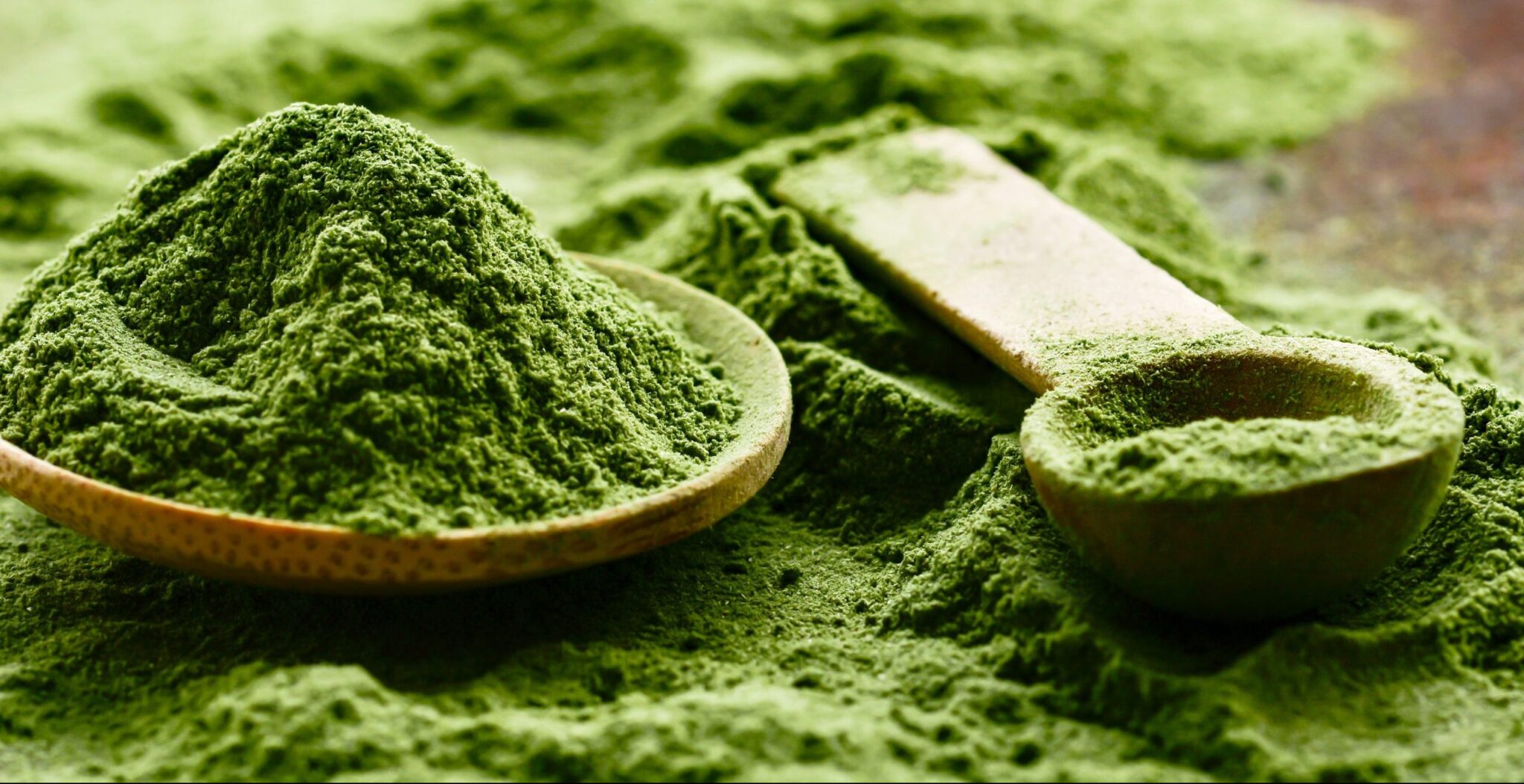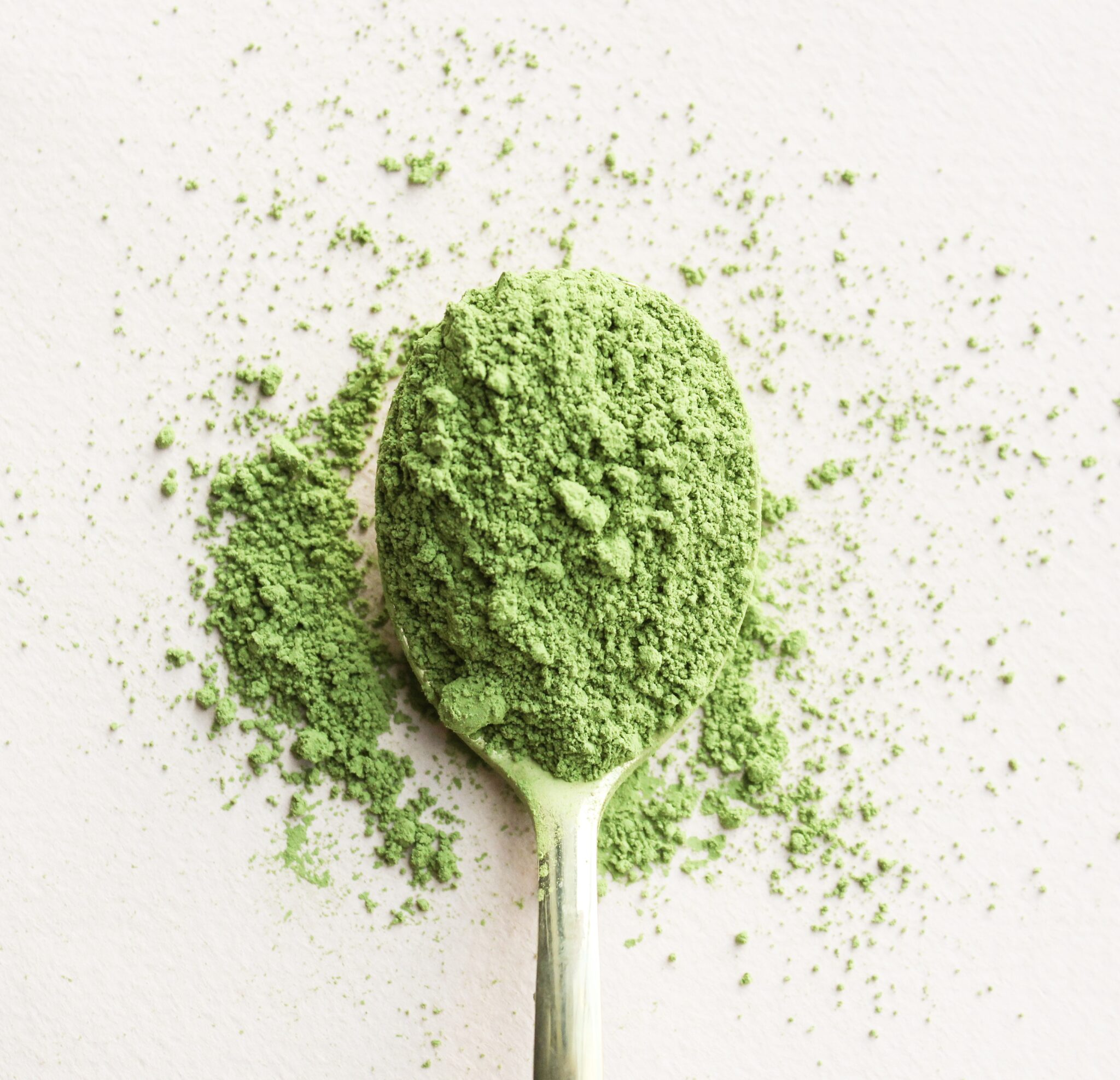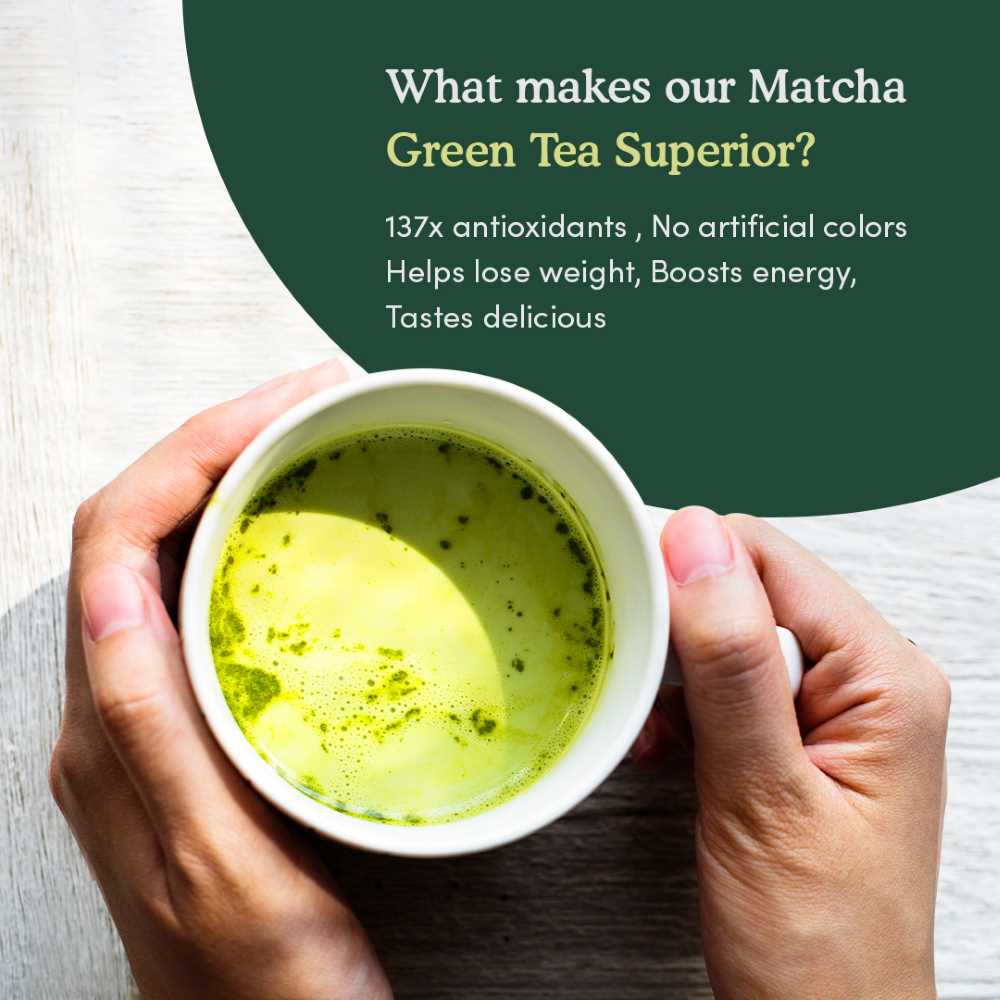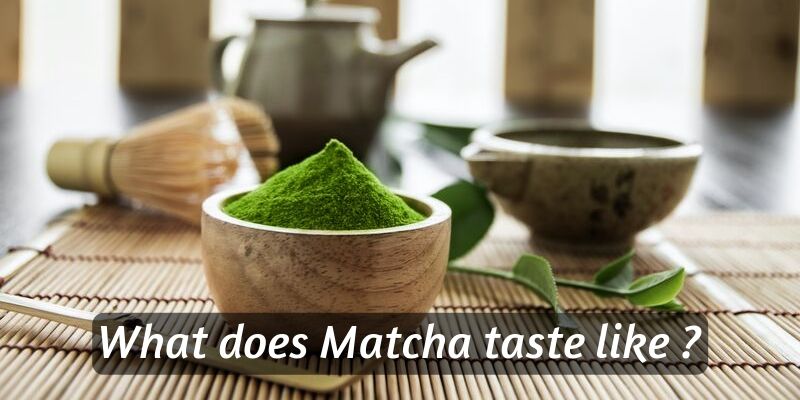Matcha Tea

Matcha Green Tea Powder
What is Matcha?
Matcha is a Japanese green tea powder made from green tea leaves from the Camellia Sinensis plant. This is the same plant that green tea is from. However, matcha is grown and processed differently than regular green tea. To make matcha, farmers cover and grow the plants in shade for 3 to 4 weeks before harvesting, steaming, drying, and then finally stone grinding whole leaves to a fine powder.
Why is this important? Growing tea leaves in the shade increase the amount of chlorophyll which makes the leaves bright green, adds nutrients, and changes the FLAVOR notes of the tea.
Tea is important in Japan. It’s at the center of communal life, providing a key ritual (literally) around which friends can gather. Each fleeting meeting is viewed as a once-in-a-lifetime opportunity, and thus, deeply cherished. The common Japanese idiom, Ichi-go, Ichi-e (meaning, “one time, one meeting”) provides the perfect description of this treasured tea time.
We resonate with this value for meaningful human interaction-just visualize your last interaction with one of our friendly Crew! So, we’re doing our part to help facilitate more such meetings among friends. Toward that end, we think our new Matcha Green Tea is a great start. It’s hard to find time to slow down and taste the tea in your busy routine, but these individual packets of real Matcha Green Tea provide an easy way to brew an authentic, quality cup anytime, anywhere.






WHAT DOES MATCHA TASTE LIKE + HOW TO USE IT?
What Does Matcha Taste Like?
Ceremonial Matcha Organic Green Tea has a complex flavor profile with mellow vegetal grassy notes, natural sweet nuttiness, and a touch of bitterness with a pleasant savory ending.
The pleasant savory taste is called umami which makes drinking matcha irresistible. Umami is a Japanese term used to describe the 5th flavor following sweet, bitter, sour, and salty. It’s a savory deliciousness that deepens and intensifies the flavor.
Have you ever tried matcha? Everyone will have their own unique way of describing the taste of matcha. Some may call it earthy tasting or have a hard time describing it because it is so unique.
If you have heard that matcha is too bitter, that is because there are many factors that go into making it. Today, we will be covering the best hacks for making the best matcha to make a smooth and delicious tea beverage.

Texture and Consistency
Prepared matcha tea has a frothy and smooth mouth feel. Whereas plain organic green tea is light and clear. The difference is that when you drink matcha you are consuming 100% of the stone-ground tea leaf suspended in a liquid. Plain green tea is steeped in water and then you drink the tea but discard the leaves.
Factors that Affect Taste
- Type of Water – Fresh spring water is preferred as it brings out the subtle flavors of matcha because of the pH level (a measure of acidity) and minerals in the water. Second, the best is filtered water. Do not use well water or hard water as this can leave a strong aftertaste.
- The temperature of Water – Keep the temperature at a maximum of 175 degrees F (80 degrees C). If you do not have a temperature setting tea kettle, boil the water and then leave it to sit for a bit to drop in temperature. You want to avoid using boiling water as this can make the matcha taste bitter.
- Matcha to Water Ratio
There are two ways to make plain Japanese tea: Usucha and Koicha.
- Usucha is the process to make a thinner matcha tea for everyday drinking. 1 teaspoon organic matcha powder to 70 milliliters (¼ cup + 2 teaspoons) water. Light, flavorful, and smooth. If you like your tea even lighter tasting, add more water to taste.
- Koicha (thicker full-bodied matcha) is generally used for Japanese tea ceremonies. 2 teaspoons (4 grams) matcha to 40 milliliters (2 tablespoons + 2 teaspoons) of hot water. Flavor notes include an intense matcha taste and creamy mouth feel.
4. Origin – Our organic matcha tea collection is from Shizuoka prefecture in Japan. If you want to be able to answer DELICIOUS to the question, “What does Matcha Taste Like?” only use premium matcha from Japan.
5. Matcha Grades:
- Ceremonial Grade Organic Matcha is the highest grade matcha with the purest flavor. Naturally sweet, vegetal grassy flavor with a smooth and creamy finish.
- Culinary Grade Matcha Organic Green Tea is boldly flavored making it the perfect addition to lattes and baking so that the grassy notes of the matcha shine through.
6. Organic vs. Non-Organic– The choice is easy as Fraser Tea only sells organic products. As we have discussed in our article, “What is Organic Tea?”, the taste could be altered if you drink tea that has been sprayed with pesticides, etc. All our teas are certified organic. Drinking 100% organic is even more important because you are consuming the whole stone ground tea leaf when drinking matcha.
7. Sweeteners – Yes, or No? If you are new to matcha, adding a tiny bit of sugar or sweetener alternative of choice can take the edge off the bitterness. We love it straight up but of course, we have been drinking matcha for decades.
Blends for Every Occasion
Did you know we have many different Organic Matcha Tea blends to choose from? Try these fun flavors.
- Raspberry
- Organic Matcha Latte
- Ceremonial
- Blueberry
- Mango
- Vanilla
- Mango Peach
- Emperor’s Finest Berry
- Cinnamon Swirl
- Genmaicha
- Culinary Grade
